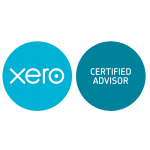Personal Tax
Sole Proprietorships & Partnership
All self-employed persons must report the income earned from their business operations as business income, not salary. The business income is part of the total personal income which is taxed at individual income tax rates.
You are considered a self-employed person when you earn a living by carrying on a trade, business, profession or vocation.
For a partnership, while it does not pay tax (partners are taxed on an individual basis instead), the partnership will still have to file an annual income tax return (called the Form P) to show all income earned and business expenses deducted by the partnership during the year.
At the beginning of the year and usually by 15 Mar, IRAS will then send out an individual income tax return (Form B or B1) or notification to sole proprietors and partners, to report on their income from business as well as income from all other sources.
Corporate Tax
GST Registration and Filing
Goods and Service Tax (GST), is a consumption tax on most domestic goods and services. Singapore’s GST is currently at 9%.
It is mandatory for businesses to register for GST when their turnover exceeds $1 million per year. Businesses that do not exceed $1 million in turnover may voluntarily register with the Comptroller if it is beneficial to the business. Companies which are registered for GST will be required to file GST returns on a quarterly basis. Once voluntarily registered, the supplier must also comply with the regulatory requirements and stay registered for a minimum of 2 years.
ECI Filing
Estimated Chargeable Income (ECI), is an estimate of a company’s taxable income after deducting its tax-allowable expenses for the Year of Assessment (“YA”). This is an annual compliance requirement governed by IRAS, where Companies are required to file within three months from the end of its financial year. There are however, exemptions to the rule. To qualify for an exemption, a company would need to fulfil the following two conditions:
(1) Annual revenue is less than S$1 million for the financial year
(2) ECI is NIL
Income Tax Filing
Subsequent to the filing of a company’s ECI, a company will be required to file its Income Tax Return by using a Form C or Form C-S to declare its actual income by 30 November in the year following the YA. For example, if your company year end is on 31st March 20X1, you will need to file your Income Tax Return on the 30 November 20X2.
Our Personal and Corporate Tax Services includes:
• Preparation of Form B and P (Sole-Proprietors & Partners)
• Preparation & filing of ECI tax submission
• Preparation & filing of annual tax returns & tax computations
• Assistance with withholding tax compliance
• Application to IRAS for voluntary disclosures of past tax errors
• Assistance with tax investigation and/or tax audit
Registered Address
60 Paya Lebar Road
#07-54 Paya Lebar Square
Singapore 409051
Operating Hours
Monday—Friday: 9:00AM–6:00PM




